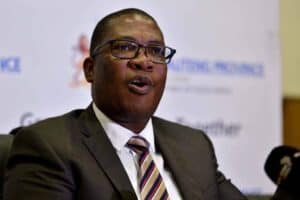It is the duty of all South Africans to ensure that we provide sustainable, workable and innovative solutions to the challenges in the education sector.

In February, just before lockdown, Amnesty International, the global human rights watchdog, released a report titled Broken and Unequal: The State of Education in South Africa.
In it, Amnesty International found that the “South African education system, characterised by crumbling infrastructure, overcrowded classrooms and relatively poor educational outcomes, is perpetuating inequality and as a result, failing too many of its children, with the poor hardest-hit”.
It called on “government to urgently address a number of endemic failings in the system to guarantee the right to a decent education for every child in South Africa. The report particularly highlights poor infrastructure in public schools”, including sanitation which has tragically resulted in the death of two children in pit latrines in recent years.
It is the duty of all South Africans to ensure that we provide sustainable, workable and innovative solutions to the challenges in the education sector, with the ultimate and simple aim of arming pupils with the necessary skills and knowledge to help them break free from the cycle of poverty.
Education is a vital key for that. It is the pathway to becoming a valuable contributor to society. All must be involved. From educators, nongovernmental organisations,the private sector, parents, local authorities and, ultimately, the government. SA needs real, solid partnerships and committed collaborations for those schools and pupils who are in a very real danger of being left behind. It requires careful planning, along with financial backing and implementation.
The Kagiso Trust, the nonprofit, self-funded development agency, has noted with concern the decision by the Treasury and government to divert funds from the department of basic education (DBE) and provincial conditional grants to the South African Airways (SAA) business rescue plan, and regard it as frustrating and a setback for the pupils of SA.
The DBE had R275 million shifted to SAA, while a further R1.3 billion in funds meant to upgrade water and medical infrastructure that indirectly affect pupils, has been taken. The trust notes that higher education and training lost a staggering R1.1 billion.
This DBE and grants money was meant to rid South Africa of the scourge of pit toilets, to build libraries and classrooms, to improve infrastructure and the provision of equipment. It will hit the poorest of the poor hardest. Covid-19 has brought the socioeconomic disparities in South Africa into stark focus, particularly the inequality gap between the haves and have-nots in the education system.
That is why Kagiso Trust has been partnering with government and partner organisations for the past 30 years to fix the historical and systemic problems and hindrances in SA’s education system. As a self-funded organisation, it works on developing sustainable programmes that have the highest impact on the education system to assist pupils on their journey to a prosperous life after their schooling.
The Beyers Naude Schools Development Programme, started in the Vhembe district in Limpopo, grew to include schools in the Thabo Mofutsanyana district in the Free State. Those schools have continued to show a strong and successful academic record over the years, proving the sustainability and viability.
The trust has also been involved in teacher training with the Kagiso Shanduka Trust, and, as Rev Frank Chikane noted in his final Kagiso Trust chair’s report before he stepped down recently, the trust is putting in place programmes to prepare children for the digital transformation of the Fourth Industrial Revolution.
Covid-19 threw the school year into disarray. Immediate, workable solutions were needed to ensure both that education continued and that pupils, teachers and school staff were safe. Given the expense of mobile data and the lack of technology equipment in rural and areas outside of the big centres, the trust partnered with the Limpopo education department to provide Grade 12 pupils with lessons given over the radio.
The lessons were hosted on three stations – Capricorn FM, Sekhukhune FM and Tubatse FM – from Monday to Sunday for an hour a day. When schools reopened as lockdown eased, the trust provided personal protective equipment – masks, hand sanitisers and information leaflets – to ensure pupils could attend class safely.
The annual Education Conversation seminar/webinar heard of the success story of a school in the Eastern Cape that set up processes to guarantee the protection of pupils and teachers. It is more than just the physical aspect of the effects of Covid-19, but the mental well-being brought on by the uncertainty over the pandemic. It gave much food for thought and examples of what is possible. All involved in education in South Africa must be aware of the enormous responsibility that sits with them.
What they do, through their dedication, developing, implementation and, very importantly, funding, will have an impact on the future of this country, both during this pandemic and post it. Now is the time for talk and action. SA’s pupils need and deserve and desperately need it.
Mola is chief operating officer of the Kagiso Trust.
For more news your way, download The Citizen’s app for iOS and Android.
Support Local Journalism
Add The Citizen as a Preferred Source on Google and follow us on Google News to see more of our trusted reporting in Google News and Top Stories.






